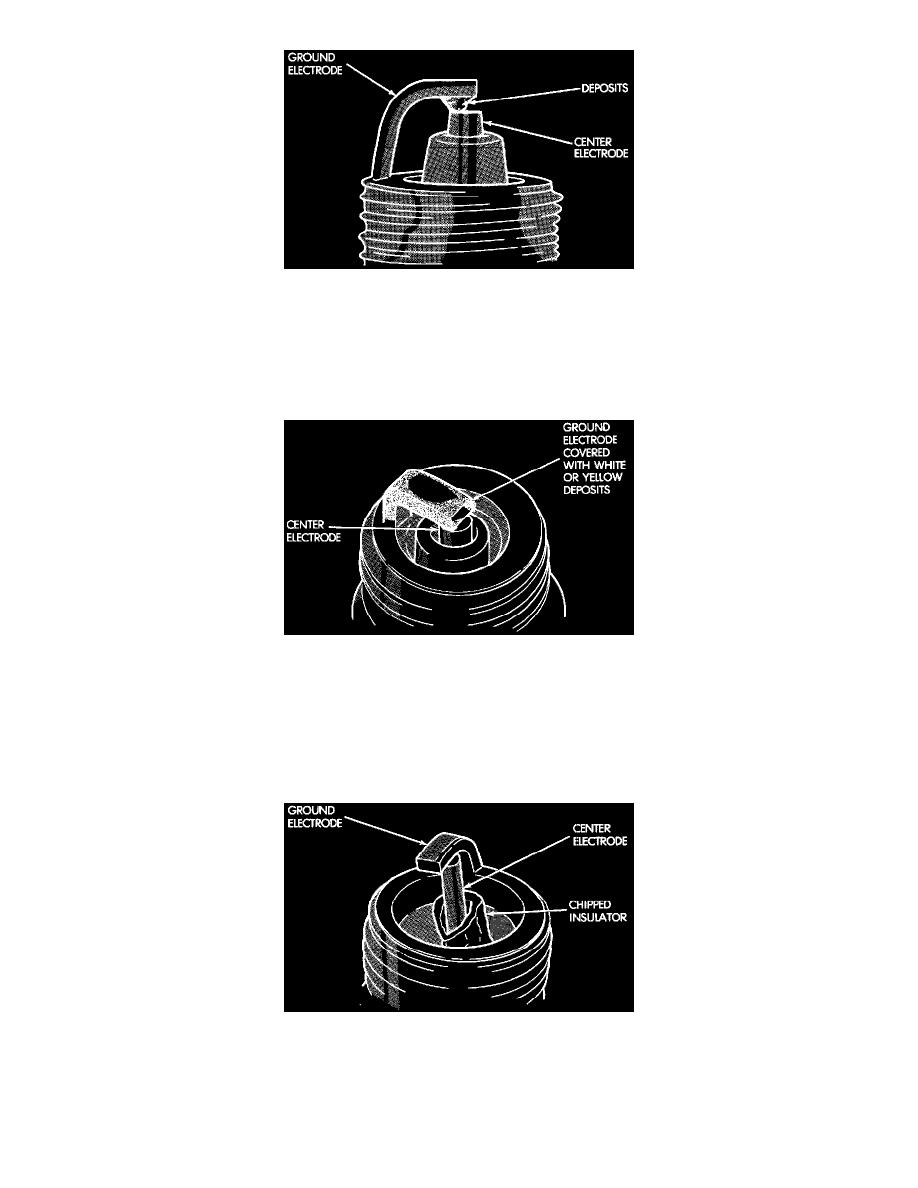Durango 4WD V8-5.9L VIN Z (1998)

Electrode Gap Bridging
Electrode gap bridging may be traced to loose deposits in the combustion chamber. These deposits accumulate on the spark plugs during
continuous stop-and-go driving. When the engine is suddenly subjected to a high torque load, deposits partially liquefy and bridge the gap between
electrodes. This short circuits the electrodes. Spark plugs with electrode gap bridging can be cleaned using standard procedures.
Scavenger Deposits
Scavenger Deposits
Fuel scavenger deposits may be either white or yellow. They may appear to be harmful, but this is a normal condition caused by chemical additives
in certain fuels. These additives are designed to change the chemical nature of deposits and decrease spark plug misfire tendencies. Notice that
accumulation on the ground electrode and shell area may be heavy, but the deposits are easily removed. Spark plugs with scavenger deposits can
be considered normal in condition and can be cleaned using standard procedures.
Chipped Electrode Insulator
Chipped Electrode Insulator
A chipped electrode insulator usually results from bending the center electrode while adjusting the spark plug electrode gap. Under certain
conditions, severe detonation can also separate the insulator from the center electrode. Spark plugs with this condition must be replaced.
Preignition Damage
